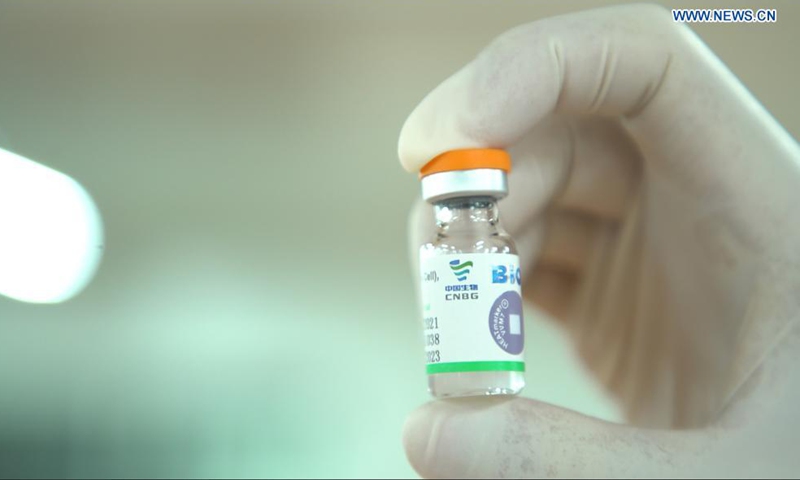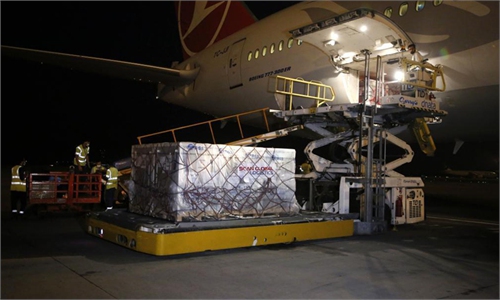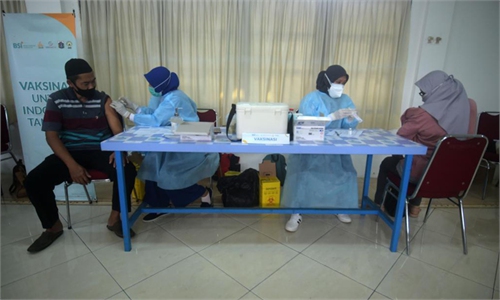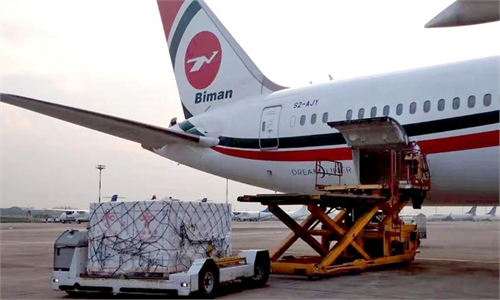
Photo: Xinhua
An institute in Wuhan, under the China National Biotec Group (CNBG), a subsidiary of Sinopharm, has isolated the Delta variant of the novel coronavirus and is accelerating development on Delta-specific vaccines, its director told the media.
The new Delta variant spread to Wuhan after about a year of virtually no COVID-19 infection cases in the city.
Duan Kai, director of the institute, told thepaper.cn that with support from local authorities, the institute soon isolated the Delta variant after the city reported one confirmed case on August 2.
"We are accelerating research on the variant. We are making efforts to finish pre-clinical trial research and apply for emergency use approval as soon as possible," Duan said.
Duan said that according to data from Phase III clinical trials on a COVID-19 vaccine developed by the institute, the vaccine shows an overall protection efficacy of 72.51 percent for all recipients and 100 percent efficacy against medium and critical diseases for all confirmed patients.
All recipients can produce high antibodies, the director said.
Duan called on the public to get vaccinated as he believes that large-scale vaccination has helped Wuhan quickly put the latest outbreak under control.
Zhuang Shilihe, a Guangzhou-based vaccine expert, told the Global Times on Tuesday that the biggest threat of Delta is its high infectivity rather than its immune-escape capacity.
Many studies conducted by Chinese and foreign researchers have proven that current vaccines are still effective in preventing critical disease and deaths caused by virus mutations, including Delta, Zhuang noted.
The most effective methods to protect people from Delta is still vaccination and non-pharmaceutical interventions, like wearing masks and keeping social distance, according to Zhuang.
But in the long run Duan said that a booster shot will be needed to enhance vaccines' efficiency against more infectious mutations. He noted that the Wuhan institute is aiming to produce 80-100 million doses per month to meet the demand.
Some Chinese experts noted that the high virus load of Delta also requires booster shots to increase the antibody level in recipients to neutralize the virus.
The institute has constructed production lines designed to produce a billion shots per year, according to Duan.
He said that it requires 70-80 percent of the national population to get vaccinated in order to build herd immunity against COVID-19. The high vaccination rate among high-risk groups is especially important to protect those who could not get vaccinated, like those who have serious chronic diseases or hypoimmunity.
According to China's National Health Commission, more than 777 million people in China had completed vaccination as of August 12.



